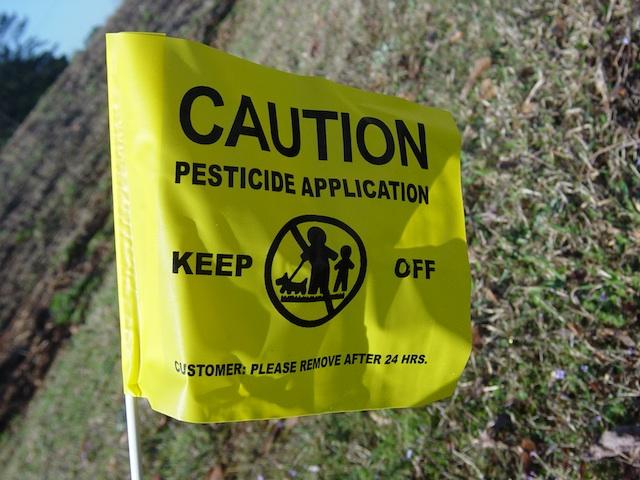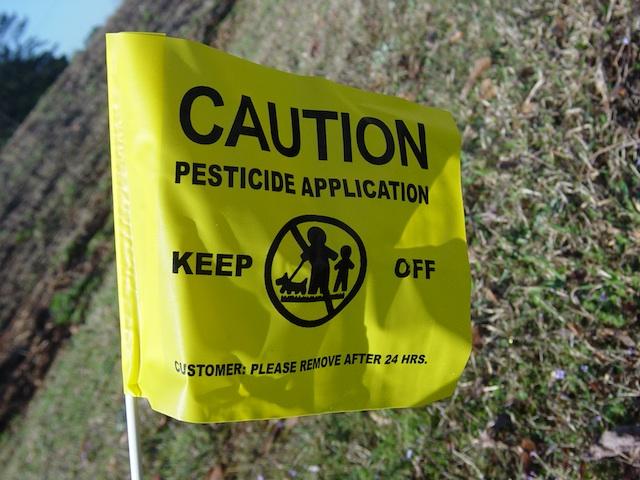Over the past two years, Sonoma State University Landscape Services has used a total of 18 different pesticides on campus. Among them is a glyphosate-based herbicide called Ranger Pro, which some experts say causes cancer.
Glyphosate is a systemic herbicide, which kills weeds by attacking them at the root. According to public records, obtained by the STAR, Sonoma State landscapers used 4,312.4 ounces of Ranger Pro in 2016. Ranger Pro must first be diluted with a ratio of about three ounces to one gallon of water before use. Therefore, the school sprayed about 1,500 gallons of Ranger Pro solution last year.
Despite its efficiency, the use of Ranger Pro and other glyphosate-based herbicides is a subject of international controversy due to disagreement among researchers as to whether or not the chemical is carcinogenic.
While scientists have yet to reach a consensus about the potential danger of glyphosate, its use on campus has raised concerns among students. These concerns are given more weight by the school’s reluctance to provide notice of where and when they spray.
“They’ll spray an area and then people will go sit there. It’s very much open to the public, and that’s a serious health concern,” Sonoma State University student and Children’s School gardener Brian McIsaac said. “I think the fact that they don’t put up signs where they spray is a big problem. If it’s not against the law, then it should be.”
As it turns out, there is a state law that requires those who use pesticides to give public notice of where and when they’ve been used. According to the California Department of Pesticide Regulation’s Pesticide Use Compliance Guide for Employers and Businesses, all pesticide users must assure that notice is given to any persons who are on the treated property, or who are likely to enter it.
The notice must include the date of the application, the brand name or common chemical name of the pesticide, and all precautions observed, as specified on the pesticide labeling or included in applicable laws or regulations.
When asked why the school doesn’t observe this policy, Samuel Youney, the director of Landscaping Services at Sonoma State, refused to comment until he could gather further information on the subject.
In 2015, after evaluating the effects of glyphosate on humans, the International Agency for Research on Cancer, a branch of the World Health Organization, classified glyphosate as a probable carcinogen under Category 2A, the second most dangerous classification in the IARC’s categorization system, after finding links to Non-Hodgkin lymphoma.
However, Youney believes otherwise. Asserting that he is a firm believer in science with a degree in agronomy and a minor in chemistry, Youney questioned the legitimacy of the IARC’s study, pointing out that several other programs within the World Health Organization such as the Core Assessment Group and the International Programme on Chemical Safety disagree with the findings of the IARC.
“There’s only one agency in the world right now called the IARC that believes glyphosate is carcinogenic, and they’re not using science,” Youney said. “The European Union and the rest of the World Health Organization say otherwise.” He didn’t expand on why he believes the IARC’s study was unscientific.
Whether glyphosate is carcinogenic or not, McIsaac expressed his dissatisfaction with the school’s use of the potentially dangerous chemical.
“As an institution of higher education, Sonoma State should be expected to be progressive and forward thinking,” he said. “It’s disappointing to me that we still use chemicals like this on our campus. We’re breathing this stuff in daily, and the university doesn’t even post warnings after spraying it.”
Clarification of last week’s pesticides story:
A story on the front page of the May 9 issue of the STAR (“Is Sonoma State violating state law by not posting signs when spraying”) last week raised questions about the use of the glyphosate-based herbicide called Ranger Pro on campus among other pesticides and the notification of when spraying occurs. The Office of Environmental Health Hazard Assessment has determined that glyphosate will be added to the list of chemicals known to the state to cause cancer for purposes of Proposition 65. Approved by voters in 1986, Proposition 65 requires the state to publish a list of chemicals known to cause cancer or birth defects or other reproductive harm. It also requires businesses to post public notifications when use of these chemicals occurs in the area. State officials say the effective date of this listing will be determined following a Court of Appeal decision in a pending lawsuit by Monsanto against the Office of Environmental Health Hazard Assessment.





![[Both photos courtesy of sonoma.edu]
Ming-Ting Mike Lee stepped in as the new SSU president following Sakakis resignation in July 2022](https://sonomastatestar.com/wp-content/uploads/2024/04/CC4520AB-22A7-41B2-9F6F-2A2D5F76A28C-1200x1200.jpeg)



























